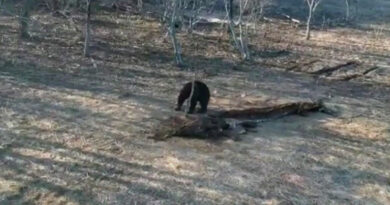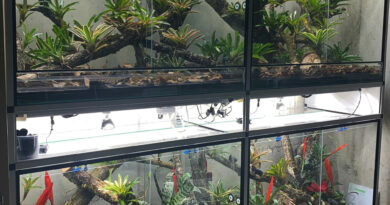Activists Slam Treatment Of Tiger Cubs As Cuddly Toys At Japanese Petting Zoo
PETA Asia has criticised the petting of tiger cubs and called for an outright ban of the practice after images emerged of visitors and animal keepers at a Japanese zoo petting a one-month old cub.
The Siberian tiger cub at the Akiyoshidai Nature Zoo Safari Land in the city of Mine in the Japanese prefecture of Yamaguchi made its public debut one and a half months after it was born on 14th May.
However, the introduction of the three-kilogramme (6.6-lb) female cub raised eyebrows due to the cuddly treatment it received by zookeepers and visitors, including young children.
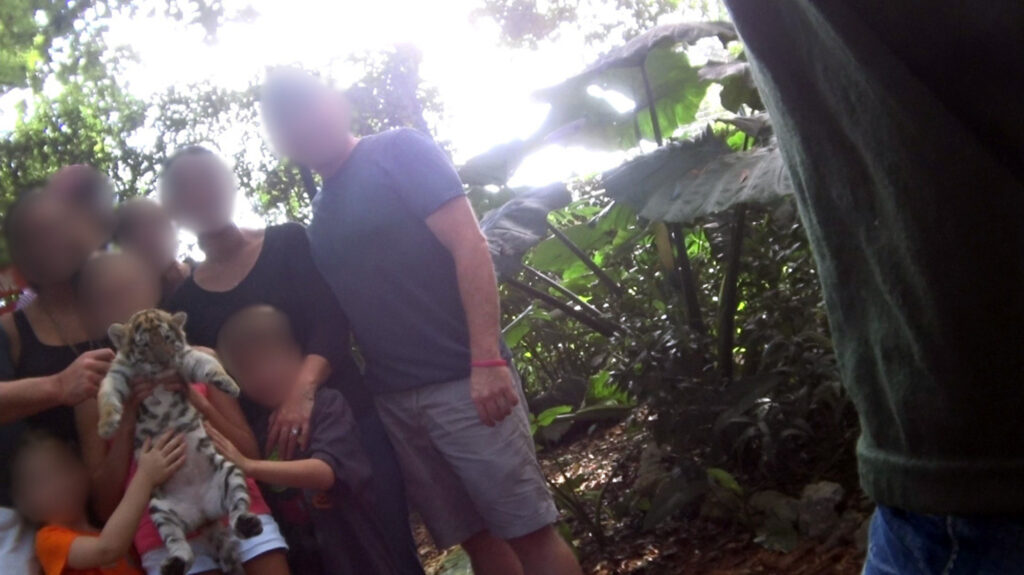
A video provided by PETA Asia shows tiger cub petting at the zoo in Japan is not an isolated incident, and that in fact it is a practice that is far more widespread where people pay to pet, play and take selfies with cubs and sometimes even adult tigers and other captive wild cats.
The practice, which uses tiger cubs as photo props for paying customers, has been widely criticised by experts and animal rights activists who campaign against the treatment of young cubs as cuddly toys.
PETA senior vice president Jason Baker emphasised the importance of putting an end to the industry, telling Newsflash: “Big cat cub-petting, which requires the traumatic separation of infant cubs from their protective and nurturing mothers when they’re just hours or days old, is always cruel, and PETA has been campaigning for it to be banned around the world.”
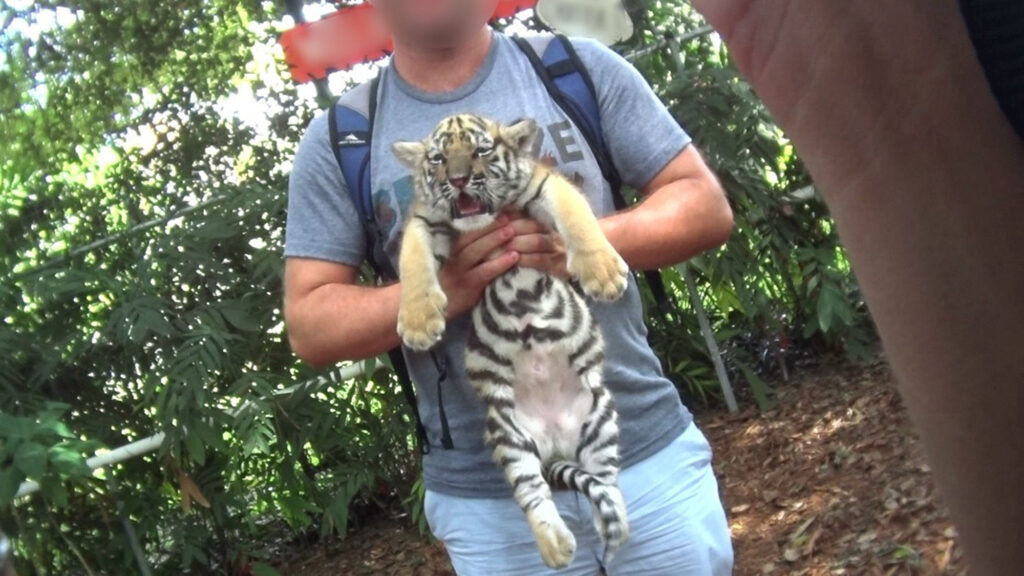
Baker continued: “In facilities that offer public interactions, like zoos across Asia, big-cat species are forced to spend their lives in unnatural and inadequate enclosures, and despite being mostly nocturnal, cubs are paraded during daylight hours like playthings for paying visitors when they should be sleeping.”
Baker told Newsflash that when the cubs grow too big to be used as photo props, they are often kept behind bars at substandard facilities for the rest of their lives or, in some countries, are slaughtered for meat and tiger bone wine or used as targets in hunts.
In contrast, visitors in japan seemed to be untroubled over the opportunity to stroke the animal and reported the cub, which spends most of its days sleeping and has not been named yet, was very “fluffy, curious and affectionate”.
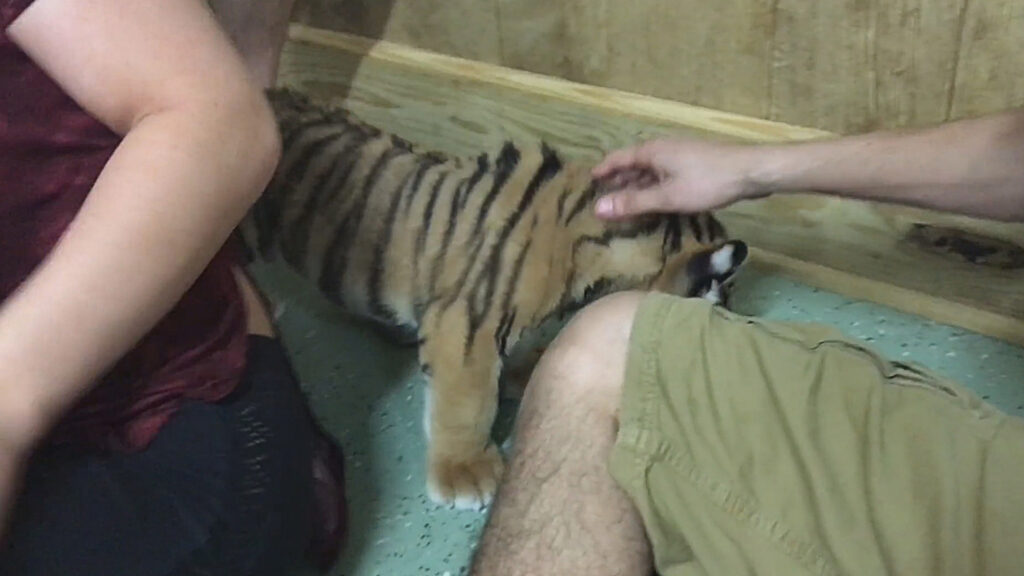
Kayoko Arase, sales representative at Akiyoshidai Nature Zoo Safari Land, said: “The only time people can see fierce animals up close is when they are small. I hope everyone will come and see the baby tiger when she is at her cutest.”
PETA spokesman Baker spoke about the seriousness of the subject, especially in terms of the global pandemic and its correlation to animal petting.
He said: “Big cats can also contract the novel coronavirus from humans, and cubs with underdeveloped immune systems may be less able to fight it.”
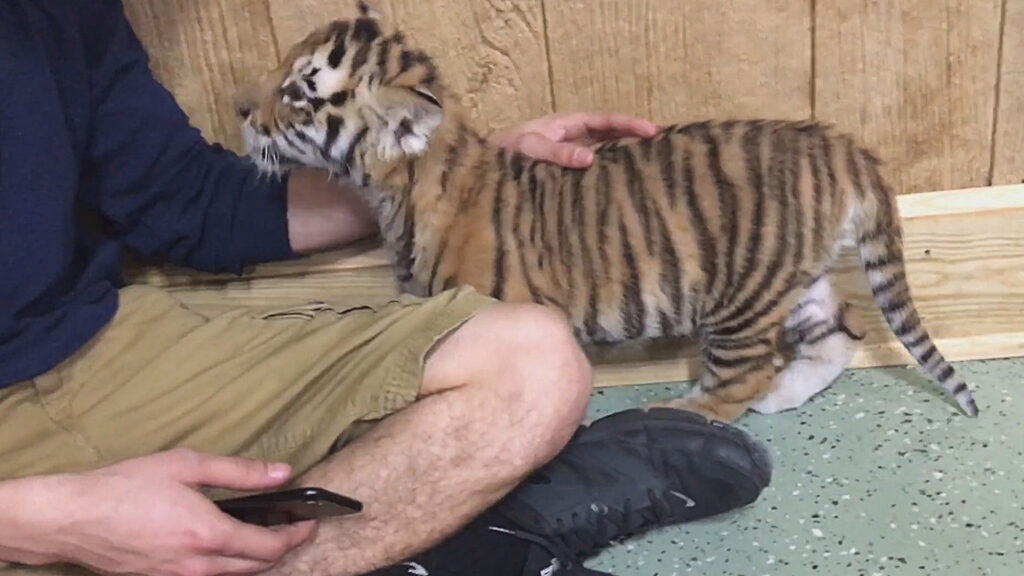
According to the World Organisation for Animal Health, studies indicate that of all animals, apart from humans, “cats are the most susceptible species for SARS-CoV-2. This susceptibility extends to captive, non-native felids.”
Baker said: “PETA urges everyone never to support businesses that offer cruel cub-petting experiences, wild-animal photo ops, or any other hands-on encounters with big-cat cubs.”

